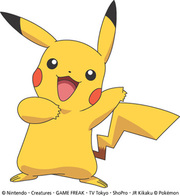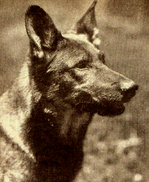Following is the essay you can designate as Volume 10, Number 29 of
This Week’s Clue, based on the e-mail newsletter I have produced since
March, 1997. It would be the issue of July 23.
Enjoy.
Anthropomorphism, the transforming of animals into human-like characters, has a long history.
But only in modern times have animal characters been seen as fully human. Even when we acknowledge them as animals.
Here’s an example of what I’m talking about. Pikachu. Just one of 493 characters created by Nintendo in their Pokemon game. It was one of my kids’ favorites growing up, so I not only had to buy them the game, and the player, but I had to watch the cartoon show spin-off.
There I learned something interesting. While the game characters were created based on the multitude of insects Satoshi
Tajiri played with growing up, the TV story was an allegory of how animals deserve to be treated, and by extension how the world deserved to be treated. What began as insects fighting like battle robots became environmentalism.
Maybe it’s because Japan has been highly urbanized for longer than most other nations. The process seems to have gone further there than elsewhere. But the process has gone on everywhere, right under our noses.
For most of this last century urban and suburban kids have grown up
surrounded by images of animals given human characteristics, or animals
demanding humane treatment. Early in the century, animals like Rin Tin Tin earned their humanity through self-sacrifice. The original dog was a war refugee, then a movie star.
The lesson was internalized, so now people grow up with wildly
different attitudes toward animals, depending on where they live. The
rural attitude, exemplified by the 4H clubs,
is that animals are resources to be carefully managed. When pressed,
hunters offer stewardship as a key part of their reason for killing wild
animals — keeping the deer from overpopulating, keeping man safe from
the predators.
The urban and suburban attitude is quite different. Once you take a pet
into your home it becomes part of the family. Whether a dog or a cat or
even a rabbit, you have an obligation to treat that animal humanely,
and increasingly people do.
Sometimes they go a little overboard, as when they spend
themselves into poverty trying to keep an old friend alive, or when
they dress the dog up and give it so many treats it gets fat. We can
argue about that, but the argument will be within fairly narrow bounds
— whether we’re spoiling animals is different from an argument about
whether we can hurt them for pleasure.
Which brings me to the Michael Vick story.
It’s a public turning point, but part of a trend I’ve seen for some
time. When Republicans seized control of the Georgia Legislature in
2005, a bill to make dogfighting a felony went further
than it ever had under Democrats. The old leadership in Atlanta had
consisted of rural legislators, who saw such things as sport, a natural
outlet for men who might spend their days raising pigs or chickens in
god-awful conditions. The new leadership was exurban, men from the
outer suburbs who saw animals as pets, and wild animals as wonders to
be appreciated.
How does this relate to the War Against Oil? When you give your
affection to an animal, when you lend it humanity, your politics
changes. The interests of animals become more important to you. First
your own animals, then all pets, then all animals.
Whether you see animals as fully human, you see a soul in your dear dog
or cat, and you begin to see other souls all around you, even in those
animals you use for food. The idea of stewardship grows, your
connection to the living world grows. You become, slowly, an
environmentalist. Even a conservative Republican will often refer to
themselves as a conservationist.
All this provides motivation for The War Against Oil. We seek a balance
in our atmosphere, in our oceans, and on our land, a balance where all
kinds of souls have a chance to live in what nature calls harmony, and
what we call civilization.
This is the balancing act of our time, the great task of the 21st
century. Your dog, the parks, the Earth, the seas, they’re all of a
piece. When you see a soul in an animal, any animal, you begin to see
the connections. And you begin to see how humans, by their actions, by
their demands, break those connections.
Whatever the motives for seeking to restore nature’s balance, the way
to do it is by treating The War Against Oil seriously. Whether you do
it for your cat, or the memory of those dogs Michael Vick murdered, or
for Pikachu, whether you do it for the wild places or just to piss off
Hugo Chavez, doing it is now part of the global consensus.
The animals, in their way, have slowly humanized us. Can we make a place for them, and for ourselves?













